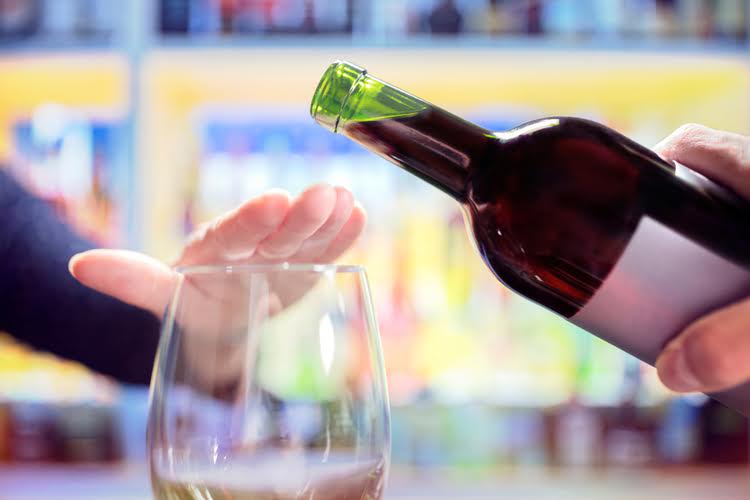Heavy drinking and chronic alcohol use can significantly impact the immune system and decrease immune function. As reviewed by Szabo and Saha, alcohol’s combined effects on both innate and adaptive immunity significantly weaken host defenses, predisposing chronic drinkers to a wide range of health problems, including infections and systemic inflammation. Alcohol’s widespread effects on immune function also are underscored in the article by Gauthier, which examines how in utero alcohol exposure interferes with the developing immune system in the fetus. This exposure increases a newborn’s risk of infection and disease; additional evidence suggests that alcohol’s deleterious effects on immune development last into adulthood. Their main role is to capture, ingest, and process antigens in order to present them on their surface to cells of the adaptive immune response (i.e., to the T-lymphocytes). Thus, dendritic cells play a crucial role in linking innate and adaptive immune responses.
Interplay Between Alcohol-Induced Stress & Immunity

Alcohol disrupts ciliary function in the upper airways, impairs the function of immune cells (i.e., alveolar macrophages and neutrophils), and weakens the barrier function of the epithelia in the lower airways (see the article by Simet and Sisson). Often, the alcohol- provoked lung damage goes undetected until a second insult, such as a respiratory infection, leads to more severe lung diseases than those https://stocktondaily.com/top-5-advantages-of-staying-in-a-sober-living-house/ seen in nondrinkers. The induced innate humoral response plays a critical role in clearing or containing infection while an adaptive response develops. It is characterized by the release of mediators of inflammatory reactions, such as cytokines and chemokines, as well as activation of the complement cascade. In addition, viral infections induce the production of various IFNs and acute-phase proteins.
Keep stress in check
However, alcohol can also weaken the immune system, cause serious health conditions and make the body more vulnerable to infections and viruses. Alcohol immunosuppression can cause someone to catch a simple cold easier than other people or develop a more serious condition such as cancer or septicemia. ”Anyone with chronic liver conditions should be avoiding alcohol, for example, people with hepatitis, nonalcoholic fatty liver disease, liver inflammation, and any condition that could affect liver function would be a reason to avoid alcohol,” notes Favini. For example, a 2015 study in the journal Alcohol found that binge drinking can reduce infection-fighting white blood cells known as monocytes in the hours after peak intoxication, essentially weakening your immune system.
Alcohol distracts the body from other functions
- Antigen-specific responses are decreased in folate-deficient humans and animals (Dhur, Galan et al. 1991).
- Taken together, these studies suggest that chronic alcohol-induced T cell lymphopenia increases T cell activation and homeostatic proliferation resulting in increased proportion of memory T cells relative to naïve T cells.
- However, the contributions of each of these changes to increased susceptibility to infection in individuals with AUD remain to be determined.
- These different layers of interaction make validation of the mechanisms by which alcohol affects immune function challenging.
After binding to LPS, monocytes are activated and mature into macrophages that travel to the site of infection to secrete important cytokines for the inflammatory response. If you feel like you cannot control your drinking on your own, you may want to consider seeking addiction treatment. For example, depending on your Top 5 Advantages of Staying in a Sober Living House level of alcohol use, quitting drinking may help resolve the first stage of alcohol liver disease. If you are drinking a lot, stopping or decreasing your alcohol use can also help your chances of not developing severe liver disease. Certain immune system cells — T cells and B cells — originate in your bone marrow.

Finally, acetaldehyde disrupts intestinal epithelial barrier function and increases paracellular permeability which plays a crucial role in the pathogenesis of alcoholic liver disease by a tyrosine kinase-dependent mechanism (Sheth, Seth et al. 2004). Male rats on a liquid diet with 35% of calories coming from ethanol also showed enhanced mRNA half-life and protein expression of LPS-induced TNF-α by increasing TNF-α in liver monocytes/macrophages (Kishore, McMullen et al. 2001). Similarly, an increased percentage of CD8 T cells expressing HLA-DR and CD57 was reported in the group of male alcoholics with self reported average alcohol consumption of approximately 400g/day for approximately 26 years (Cook, Ballas et al. 1995). Taken together, these studies suggest that chronic alcohol-induced T cell lymphopenia increases T cell activation and homeostatic proliferation resulting in increased proportion of memory T cells relative to naïve T cells.
The human gut is the largest organ with immune function in our body, responsible for regulating the homeostasis of the intestinal barrier. A diverse, complex and dynamic population of microorganisms, called microbiota, which exert a significant impact on the host during homeostasis and disease, supports this role. In fact, intestinal bacteria maintain immune and metabolic homeostasis, protecting our organism against pathogens.
Thinking of Stopping Drinking? 9 Tips to Succeed
- Learn how these effective alcohol policies work to protect people from alcohol-related harms.
- Some of these molecules can activate the vagus nerve or reach the brain and liver via systemic circulation.
- Both the innate and the adaptive immune response are critical for effective host defense to infectious challenges.
- Alcohol does affect your ability to stay healthy, but that’s also dependent on how much you’re drinking.
They produce immune molecules called antibodies or immunoglobulins that they can either display on their surface or secrete. The antibodies can recognize and interact with antigens, and each B-cell produces antibodies that recognize only one specific antigen. These antibodies then will bind to any matching antigen molecules they encounter in the blood or on other cells, thereby marking them for destruction. Some B-cells, however, become memory cells that will remain dormant in the body for years and can be activated rapidly if a second infection with the same pathogen occurs. The activities of T-cells and B-cells are intricately intertwined through the actions of various cytokines to orchestrate an effective immune response to any pathogen the organism may encounter. Each time a person drinks alcohol, some of the liver’s cells die, and new ones regenerate.
- If you use alcohol, try to keep it to one drink a day for women and two drinks for men.
- However, similarly to the in vitro studies described above, at 2 and 5 hours post-binge the numbers of circulating monocytes were reduced and levels of antiinflammatory IL-10 levels were increased (Afshar, Richards et al. 2014).
- ”By damaging those cells in your intestines, it can make it easier for pathogens to cross into your bloodstream,” says Nate Favini, MD, medical lead at Forward, a preventive primary care practice.
- Don’t be fooled, Mohr says, most of this is marketing language to get consumers to “justify their alcohol consumption.”
- Acetaldehyde is the toxic byproduct that contributes to tissue damage, alcohol dependence, and addiction (Zakhari 2006).
